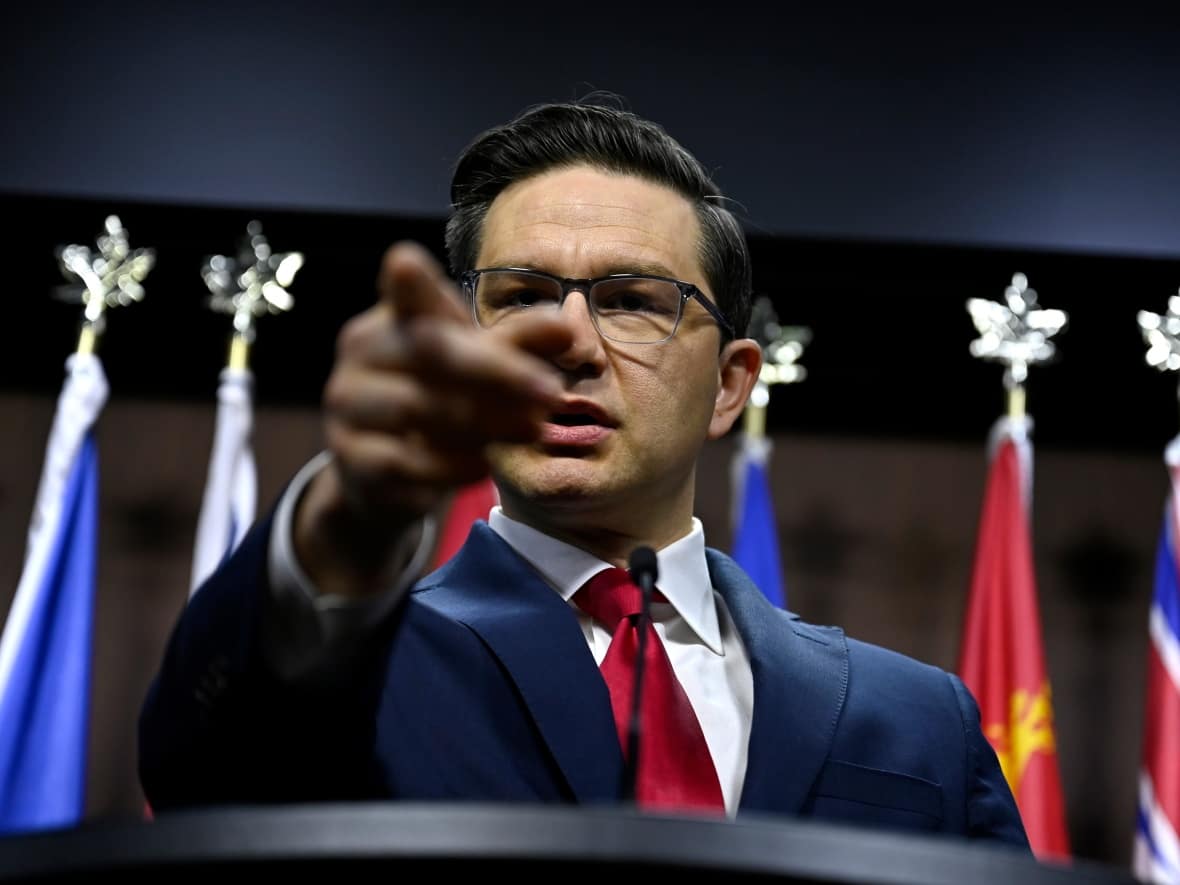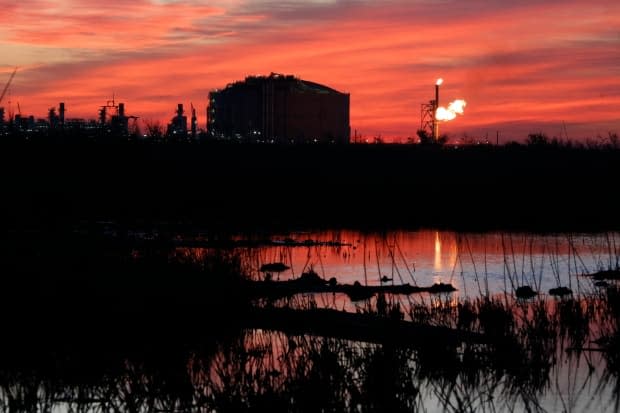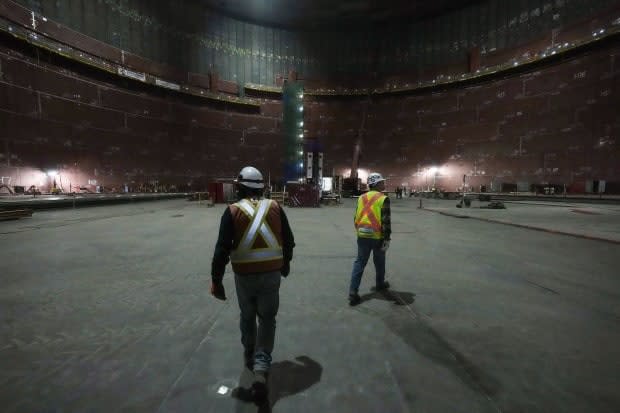Poilievre attacks Canada's natural-gas policies as Europe says it wants hydrogen

Conservative Leader Pierre Poilievre slammed the federal Liberal government over its handling of the liquefied natural gas (LNG) file Tuesday, saying Canada missed its opportunity to supply Europe with the fossil fuel.
Europe faced a serious supply crunch last year as it weaned itself off Russian oil and gas following Moscow's unprovoked invasion of Ukraine.
Amid a mad scramble to replace Russian gas, Germany and other EU members turned to Canada as a possible solution to their supply woes.
Ursula von der Leyen, the president of the EU commission, visited Canada Tuesday for a meeting with Prime Minister Justin Trudeau to discuss the ongoing war in Ukraine, climate change and other issues.
Asked by reporters if Europe is still interested in Canadian natural gas, von der Leyen said there's no viable way to get that gas across the Atlantic to the energy-starved continent.
"We don't have the necessary infrastructure to link Canada to the EU," von der Leyen said.
"It is an extraordinary journey that we've undertaken over the last year. What have we done? We've immediately diversified away from Russia to like-minded, trusted partners — most and foremost the U.S. with LNG."

Norway and the Netherlands have also bolstered their natural gas exports to other countries in the economic bloc.
Von der Leyen said the EU is interested in buying hydrogen from Canada and called the country a "prime potential partner."
The U.S. natural gas industry has been a big beneficiary of the Russian conflict and the resulting EU supply shock.
U.S. LNG exporters boosted shipments to Europe by more than 137 per cent in the first 11 months of 2022 — an increase that has resulted in tens of billions of dollars in new revenue, according to U.S. Energy Information Administration (EIA) data.
That dominance is likely to continue in 2023 as more U.S. export capacity comes online.

While Canada has an abundance of natural gas, there's virtually no infrastructure in place to liquefy that product and ship it overseas.
Poilievre said the Liberal government is to blame because it strangled the industry in red tape.
If Canada had more functioning LNG export terminals, he said, the country could have cashed in.
"Europe needs our natural gas. When Trudeau took office we had 15 natural gas export terminals on his desk. Not a single one has been completed," Poilievre said.
"He's helping fund foreign dictatorships by shutting out our industry. A Conservative government led by Pierre Poilievre will quickly approve natural gas exports. We'll turn dollars for dictators into paycheques for our people."
The Liberal government has approved one major LNG project — the largest private-sector project in the country's history, LNG Canada's facility in Kitimat, B.C.
The project, being built by a consortium led by energy giant Shell, will export LNG to points in Asia.

That new supply will allow exporters, like Australia and Qatar, to divert some of their supply to other markets, including Europe.
But other Canadian LNG projects have failed to materialize.
Over the last decade, businesses have pitched 13 LNG export terminals for Canada's West Coast and five for the East Coast.
These projects have floundered for a variety of reasons.
Trudeau said there just hasn't been a business case to support building all of the proposed export terminals.
"There is no hesitation. We will continue to work very hard to be there for our European partners now and into the future," Trudeau said.
"Canada can position itself to be a reliable supplier of energy in a net-zero world."
It's ultimately up to the private sector to decide whether to proceed with projects and they make those decisions based on "market expectations and commercial principles," he said.
With shipments of Canadian LNG to Europe off the table for now, Canada and the EU are focused on joint efforts to produce more hydrogen.
Last fall, German Chancellor Olaf Scholz said Germany is interested in helping Canada develop its hydrogen production capacity — still a nascent industry with very little production underway — so that it can eventually tap into that resource.
Germany is interested in "green" hydrogen, a form of fuel that is produced through electrolysis with no resulting emissions. Green hydrogen is prohibitively expensive to produce.
To make it more viable, Trudeau and von der Leyen announced Tuesday an "enhanced Canada-EU action plan" to "advance commercialization of the hydrogen industry and develop transatlantic trade," according to a readout from their bilateral meeting in Kingston, Ont.
"Recognizing the essential role that clean hydrogen will play in de-carbonizing our economies and in meeting global energy needs, the leaders agreed to work together to lay the foundation for the development of a reliable hydrogen supply chain between Canada and the EU," the readout said.


